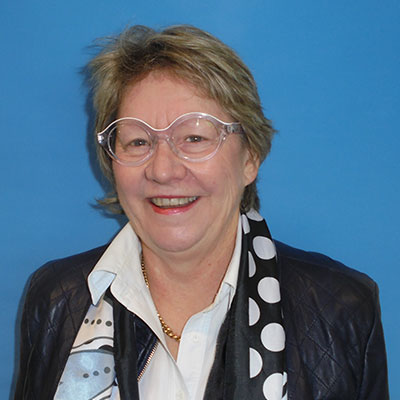WA Annual Report Summary 2015/16
Foreword from WA State Manager, Robyn Collins
It has been a year of significant achievement and action in the WA AHPRA office. In partnership with the National Boards, the WA AHPRA office regulates 67,384 registered practitioners – 10.2% of all registered practitioners nationally and an increase of 1,796 from the last year.
Highlights of 2015/16
- Efficient handling of complaints: We intensified our focus on responding to new notifications that involve a potential risk to the public and therefore warrant immediate attention.
- Increased collaboration: The WA office, with National Board and AHPRA representatives and health complaints commissioners from WA, the Northern Territory, South Australia, Tasmania and Victoria, participated in a pilot project to improve how notifications are managed nationally.
- WA registrants with notifications lower than national average: WA was one of only three jurisdictions in Australia where notifications decreased in 2015/16 (from 781 in 2014/15 to 718), with 1.2% of WA practitioners the subject of complaints.
Working in partnership with the National Boards
The WA office directly supports the four state or regional boards or committees of the National Boards who make decisions about individual practitioners locally in WA or regionally. We also develop the papers for local matters considered by the remaining ten professions with national committees. This year, the WA office received 6,643 new applications for registration and 718 notifications about health practitioners.
Building stakeholder relationships
In 2015/16, AHPRA WA participated in 175 external stakeholder activities, engaging with approximately 50 different organisations about registration standards, notification processes and other issues related to the National Scheme. These stakeholders included the Health Consumers Council WA, the Health and Disability Services Complaints Office (HaDSCO), public and private hospitals, universities and other health education providers, and government and non-government health agencies. One of these events was a graduation ceremony for Indigenous enrolled nurses studying with Marr Mooditj Training, which we were invited to attend to answer questions from new graduates.
The WA office continued to work closely with HaDSCO (the local health complaints entity) to support a national working group established to implement a number of improvements promoting greater consistency and collaboration, including better communication with complainants and with each other to support joint consideration of complaints. The working group also initiated an information campaign about the roles and responsibilities of AHPRA, the National Boards and health complaints entities (HCEs), including producing a brochure for the public on the most suitable organisation through which to direct a complaint.
Managing risk through local decision-making
The mechanisms for managing risk are consistent in each state and territory under the National Scheme, and may include some or all of the following: immediate action; imposing restriction; accepting undertakings; suspension or cancellation of registration; ongoing compliance monitoring of practitioners; and/or audits.
Boards may also refuse or impose conditions on registration while making decisions on registration applications.
On 76 occasions, the registration of a WA-based practitioner was suspended or restricted as an outcome of the Board taking immediate action to protect public health or safety. This year, 36 notifications were closed after a hearing by the State Administrative Tribunal.
Local office, national contribution
Registration teams from the WA and New South Wales offices combined efforts to efficiently process complex registration applications from practitioners with an international nursing or midwifery qualification. Collectively, more than 3,450 applications have been assessed, reducing the previous processing time by half.
AHPRA works closely with the Occupational Therapy Council (Australia & New Zealand) Ltd in dealing with applications from overseas qualified occupational therapists; all applications received at AHPRA offices across the country continue to be reviewed and processed in the WA office.
WA continues to host quality assurance as a national function. This is a great example of local contribution to the National Scheme, as we harness specialist skills in key areas in WA and apply them nationally. The WA-based manager of quality assurance supports the governing national committee to implement national quality assurance activities in core business areas.
Late this year, I was made cluster lead with accountability for the Adelaide, Darwin and Perth offices, in collaboration with the State and Territory Managers in those jurisdictions. The desired outcome of cross-jurisdiction work is to continue to improve efficiency, consistency and overall performance, and I look forward to meeting this challenge with the cooperation of the team.
I would like to take this opportunity to thank the members of the WA and regional boards and committees for their diligence, expertise and commitment to the community of WA.
I would also like to extend my sincere gratitude and thanks to the hardworking team in the WA office for their continued dedication, professionalism and commitment to regulation excellence.

Adjunct Associate
Professor Robyn Collins
WA State Manager,
AHPRA